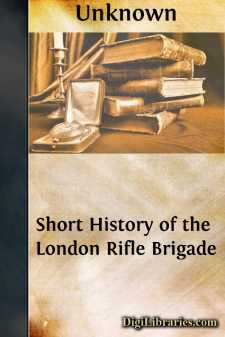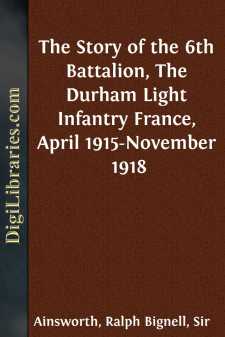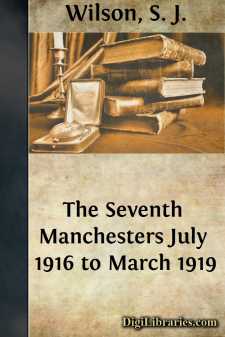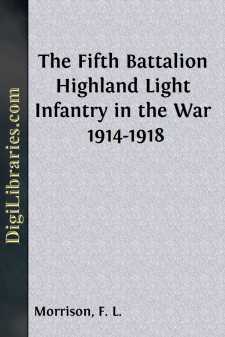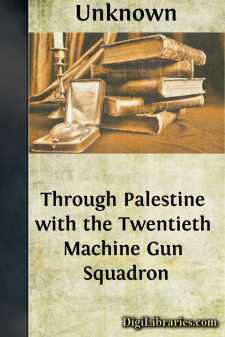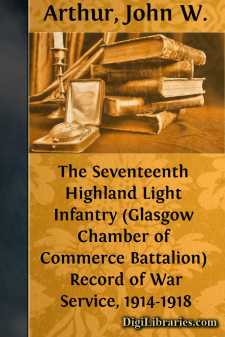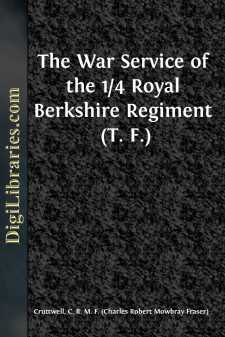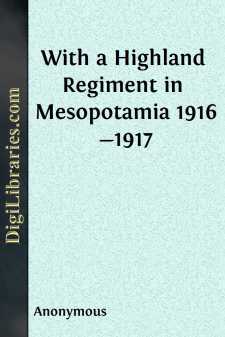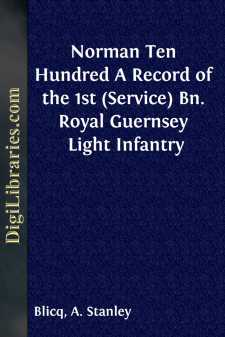History
- Africa 30
- Americas (North Central South West Indies) 50
- Ancient 68
- Asia 58
- Australia & New Zealand 8
- Canada 41
- Caribbean & West Indies 1
- Civilization 20
- Eastern Europe 12
- Europe 310
- Expeditions & Discoveries 60
- General 77
- Historical Geography 1
- Jewish 9
- Latin America 3
- Medieval 8
- Middle East 13
- Military
- Revolutionary 8
- Study & Teaching 5
- United States 353
- Western Europe 56
- World 13
Military Books
Sort by:
by:
Unknown
PART I.Formation.The London Rifle Brigade, formerly the 1st London Volunteer Rifle Corps (City of London Rifle Volunteer Brigade), and now, officially, the 5th (City of London) London Regiment, London Rifle Brigade, familiarly known to its members and the public generally by the sub-title or the abbreviation "L.R.B.," was founded July 23rd, 1859, at a meeting convened by the Lord Mayor. It has...
more...
The "Salient." First Phase. The end of March, 1915, found the 50th (Northumbrian) Division of the Territorial Force awaiting orders to proceed overseas. The infantry of the Division consisted of the 149th Infantry Brigade (4th, 5th, 6th and 7th Battalions Northumberland Fusiliers), the 150th Infantry Brigade (4th Battalion East Yorkshire Regiment, 4th and 5th Battalions Yorkshire Regiment, and...
more...
PREFACE My friend, Major G. K. Rose, has set out to describe the doings of the 2/4th Oxfordshire and Buckinghamshire Light Infantry during the Great War. If I judge his purpose rightly, he designs to paint without exaggeration and without depreciation a picture which shall recall not only now, but more especially in the days to come, the wonderful years during which we ceased to be individuals pursuing...
more...
by:
S. J. Wilson
CHAPTER I. Holding up the Turk. In September, 1914, the 7th Bn. Manchester Regiment set out for active service in the East in goodly company, for they were a part of the 42nd (East Lancashire) Division, the first territorials to leave these shores during the Great War. After many interesting days spent on garrison duty in the Sudan and Lower Egypt they journeyed to Gallipoli soon after the landing had...
more...
by:
F. L. Morrison
FROM MOBILISATION TO THE EAST. The period from the date of mobilisation to the date on which we began our active service experiences we propose to pass over quickly, as the events which happened then seem now of small interest to those coming later. With orders prepared carefully in peace time, mobilisation went smoothly. The Normal School, Glasgow, became a barracks and a place for the busy public of...
more...
by:
Unknown
PART I. Formation of the Squadron. It was on the 4th July 1917 that authority was given to the 7th Mounted Brigade (then at Ferry-Post, Ismailia), for the formation of a Machine-Gun Squadron to be known as the "20th." It was to consist of "Headquarters" and only three sub-sections, there being but two regiments (instead of the usual three) in the 7th Brigade. On July 4th, Lieut. E.P....
more...
by:
John W. Arthur
I.—FORMATION AND HOME TRAINING. THE NATION'S CALL TO ARMS. Great Britain declared war on Germany on August 4th, 1914, and almost immediately the combatant strength of its Regular Army was on service and the great bulk of that gallant force engaged in those fierce actions against odds which marked the early fighting. The War Office was quickly alive to the fact that the Regular Army could not...
more...
MOBILISATION AND TRAINING Late in the afternoon of August 2nd, 1914, the 4th Royal Berks Regiment joined the remainder of the South Midland Infantry Brigade for their annual camp on a hill above Marlow. War had broken out on the previous day between Germany and Russia, and few expected that the 15 days' training would run its normal course. It was not, therefore, a complete surprise when in the...
more...
by:
Anonymous
CHAPTER 1. At the outbreak of war, the 2nd Battalion —— was stationed at Bareilly, having been in India since the end of the South African War. Of the fighting in that campaign, the 2nd Battalion had had its full share. At first it formed part of General Wauchope's Highland Brigade and fought with traditional stubbornness at Magersfontein and Paadeburg, and later on identified its name with...
more...
by:
A. Stanley Blicq
Fed up! Every man of the Ten Hundred was fed up. Thirty-six hours cooped in cattle trucks, thirty or forty in a truck and inhaling an atmosphere that would have disgusted a pig—enough to feed anyone up. The Belgian frontier was crossed at sunset and the fringe of war's devastation penetrated. Little interest or casual comment was aroused, although a reputable thirsty one remarked that he thought...
more...


